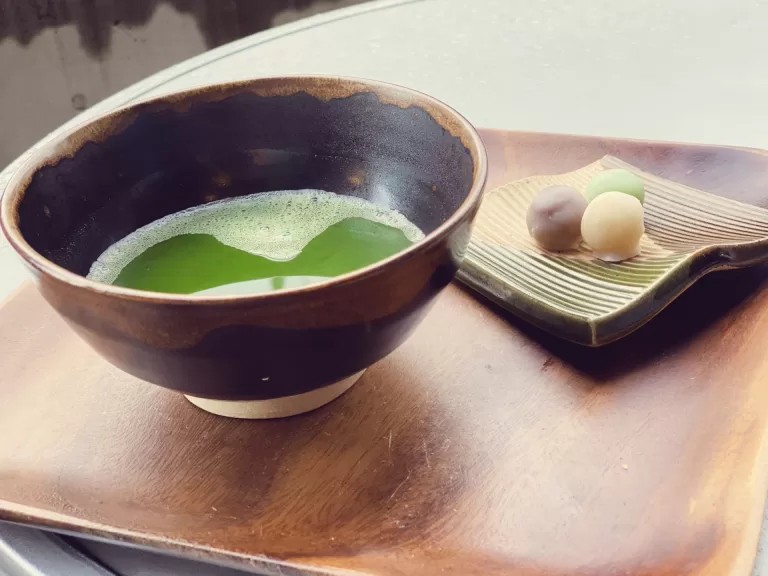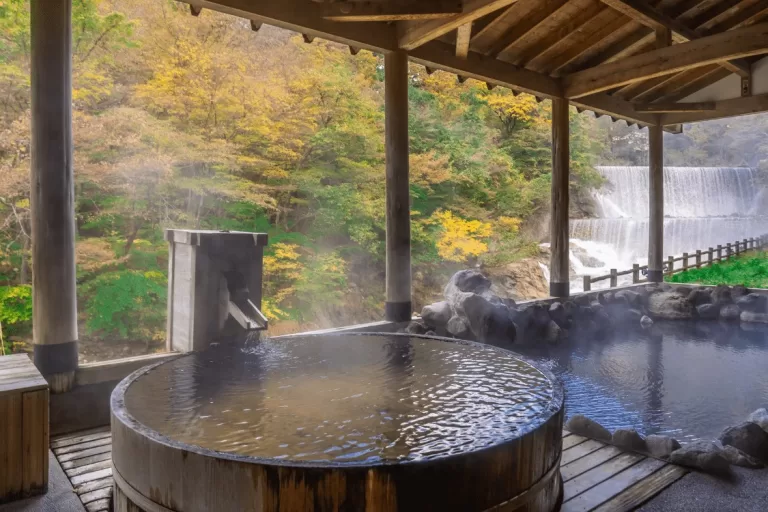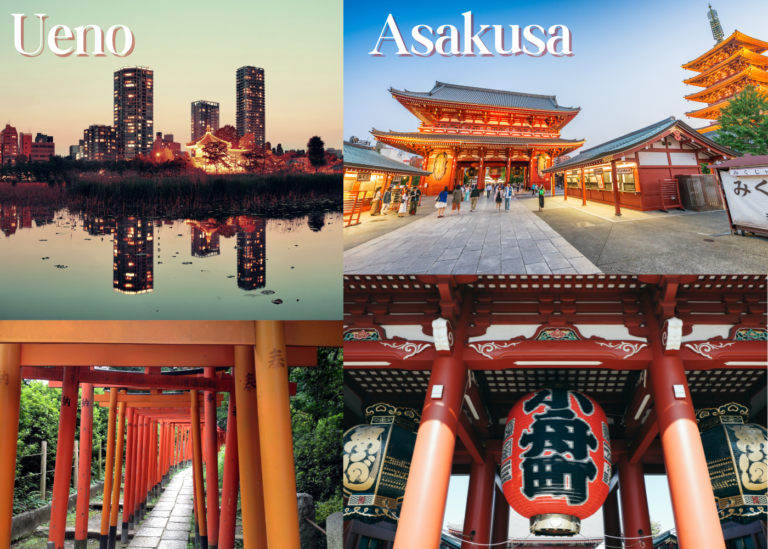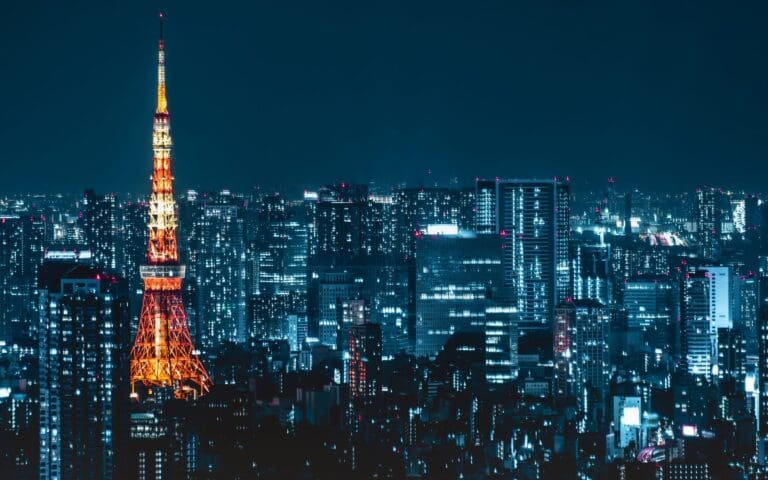Is One Night in Ryokan Enough? 3 Tips from A Local (2024)
I was fortunate to experience ryokan stays from a young age, accompanied by my family on trips during the changing seasons. One of my most cherished memories is my first time to ryokan stay in Nikko during the autumn when the hills were filled with fiery reds and oranges from maple trees in Japan.
If you’re planning a trip to Japan whether for a unique honeymoon or a celebration or just a simple solo travel, I’m sure you’ve heard about staying in a ryokan. These aren’t just hotels; they’re a full-blown cultural dive into what makes Japan, well, Japanese.
But here’s the kicker: if you’re wondering whether one night is enough to get the full experience, let me share a bit of insider advice—spend a bit more time if you can, if you are asking yourself is one night in ryokan enough.
Some of the links on this site are affiliate links, which means a commission may be earned if a purchase is made through them. This comes at no additional cost to you. These links are provided to enhance the travel experiences shared on this site. The support provided through these links helps to maintain the site.
What’s a Ryokan, Anyway?
A ryokan is this traditional Japanese inn where everything from the floor up is designed to give you a taste of Japanese tradition.
We’re talking tatami mats, futon beds, and those sliding paper doors. It’s about enjoying simplicity and elegance.
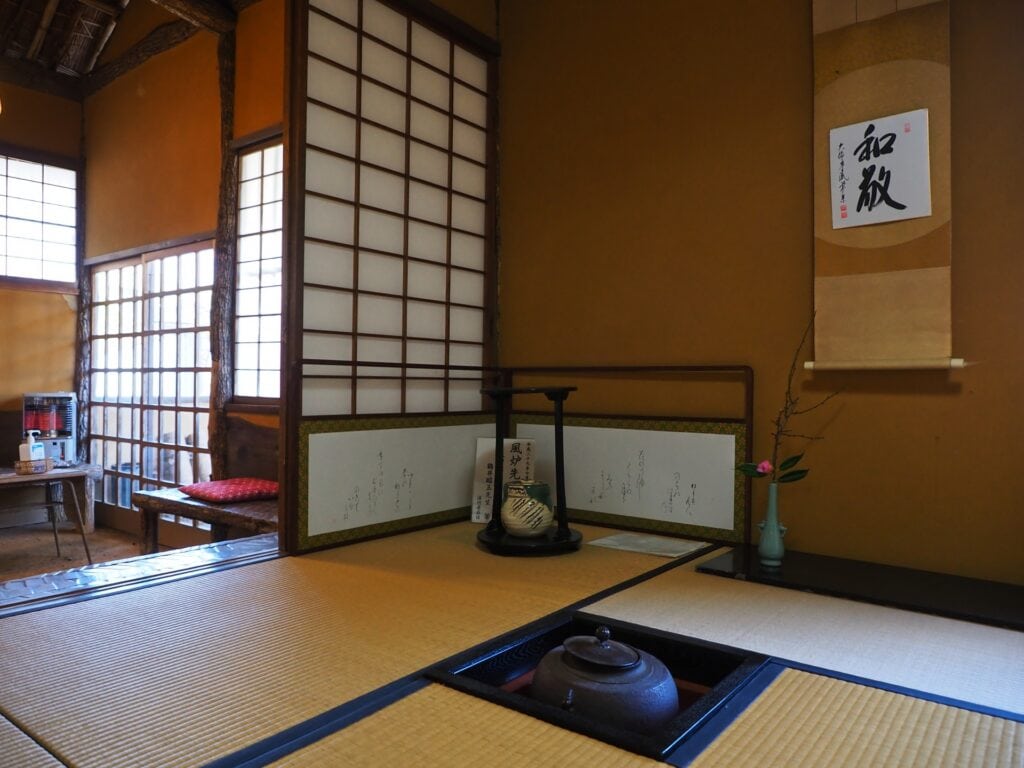
You’ll slip into a yukata (a casual kimono), sleep on the floor (way comfier than it sounds), and maybe even soak in a communal hot spring bath.
Tip 1: Avoid a Rushed Ryokan Experience
Staying just one night in a Kyoto ryokan can feel a bit hectic and might not give you the full experience you’re hoping for.
Imagine this: you arrive mid-afternoon and spend some time checking in and getting settled into your room. Ryokans often have specific check-in processes that embrace traditional Japanese hospitality, which can take longer than typical hotel check-ins.

Then, you have just a few hours to enjoy the onsen, partake in a kaiseki dinner, and maybe squeeze in a quick evening walk around the historic area.
The next morning, after breakfast, it’s already time to check out and move on.
This rush can lead to feeling stressed about packing and the possibility of forgetting personal items as you transfer from one hotel to another—common issues when hopping between accommodations.
Furthermore, considering you’re not in Japan often, staying at a ryokan for only one night limits the depth of memories you can create.
Also, there are also ryokans that offer a bunch of cool stuff to do, like learning calligraphy or flower arranging.
Plan Your Perfect Ryokan Day
- Start Relaxed: Arrive in the evening, unwind in the onsen, and relish a kaiseki dinner. It’s the best introduction to ryokan living.
- Full Day Immersion: Wake up to a traditional breakfast, explore nearby sights or enjoy on-site cultural activities, then wrap up with another exquisite meal.
- Ease into the Morning: Have one last soak in the onsen after a hearty breakfast before you head out, refreshed and ready for your next adventure.
Tip 2: Best Spots for a Ryokan Stay: Kyoto and Hakone
Kyoto and Hakone stand out as the best places to experience staying in a ryokan for several compelling reasons, each tied closely to what they uniquely offer in terms of cultural richness and natural beauty.
Kyoto: Imagine strolling out of your ryokan into the heart of Japan’s imperial history. In Kyoto, the ryokans are not just places to stay; they are gateways to the past.
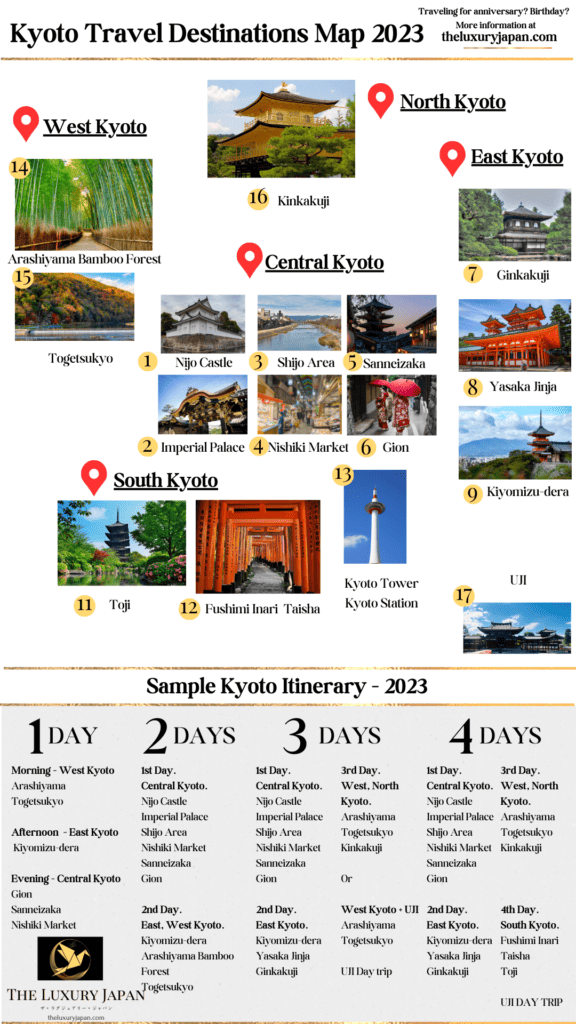
Here, you can spend days exploring ancient temples and attending traditional tea ceremonies—experiences that you simply can’t rush.
Staying just one night might give you a taste, but trust me, you’ll be missing out on the full flavor of Kyoto’s rich cultural offerings. Take at least a couple of days to really delve into everything the city has to offer right from the doorstep of your ryokan.
- Former Capital of Japan: Kyoto was the capital of Japan for over a millennium, making it the heart of Japanese history and culture. This city is home to over 2,000 temples and shrines, including famous ones like Kinkaku-ji (the Golden Pavilion) and Fushimi Inari Shrine.
- Authentic Ryokan Experience: Many ryokans in Kyoto are historic buildings that have been preserved and maintained over the centuries. Staying in a Kyoto ryokan often means experiencing Japanese traditions in their most authentic form, from the architecture to the hospitality.
- Cultural Activities: Kyoto ryokans typically offer cultural experiences like tea ceremonies, traditional music performances, and more, allowing guests to immerse themselves in Japanese culture without leaving their accommodations.
Hakone: Looking for a scenic escape? Hakone’s your spot. With views of Mt. Fuji and loads of natural hot springs, it’s a haven for anyone looking to chill in nature.

Picture yourself unwinding in a hot spring with Mt. Fuji in the backdrop—sounds perfect, right? Hakone’s ryokans are all about embracing the natural beauty.
Although Hakone has been a go-to weekend destination for me, I went there in the end of March 2024 and it was still worth the visit.
We were rushing to get the last ride of the pirate ship (at 15:55!) and of course rushing like this is something you want when traveling to a country like Japan.
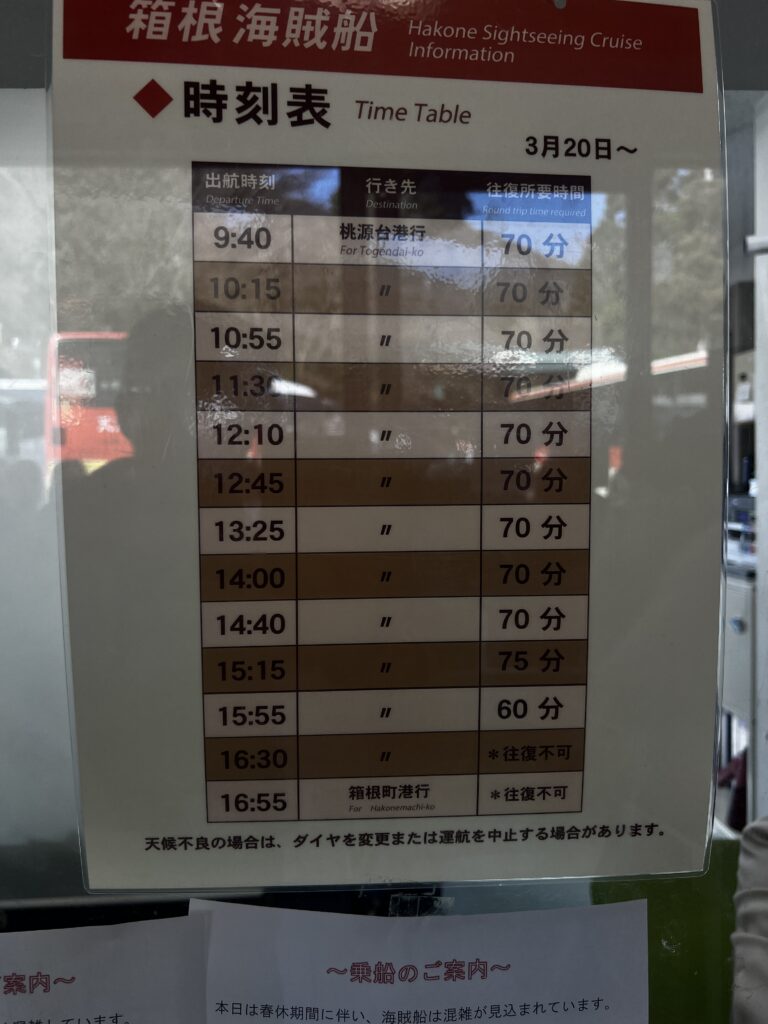
One night just isn’t enough to enjoy the peace of the lakes, mountains, and the famous open-air museum. Give yourself a few days to truly disconnect and rejuvenate. You won’t regret the extra time spent basking in nature’s beauty!
- Natural Beauty: Located in the Fuji-Hakone-Izu National Park, Hakone is known for its stunning natural scenery, including views of Mount Fuji, Lake Ashi, and an array of hot springs (onsen). The natural setting provides a peaceful backdrop for relaxation and rejuvenation.
- Onsen Experience: Hakone is famous for its onsen, natural hot spring baths that are a key feature in many ryokans here. These onsens are not only relaxing but are also believed to have health benefits due to their mineral-rich waters.
- Accessibility and Recreation: Just a short trip from Tokyo, Hakone offers easy accessibility for travelers. It also provides a variety of outdoor activities like hiking, boating, and exploring the Hakone Open Air Museum, making it ideal for those looking to combine relaxation with some light adventure.
Tip 3: Book Early and Respect Ryokan Etiquettes
Book Early: Especially in hotspots like Kyoto and Hakone, ryokans are in high demand. Planning ahead not only ensures you get a spot but also helps you snag the best rooms—perhaps one with a private onsen or the best view.
Please note that when booking a ryokan, you are not only competing with foreign tourists but also Japanese travelers.
Although the intention to travel in 2024 is high, the majority of destinations are domestic.
For example, for Golden Week 2024, approximately 90% of travel plans for Golden Week are domestic trips.
Booking last minute often means settling for what’s left, not what’s best. Plus, the longer you wait, the harder it gets to align your stay with your ideal travel dates.
Chat with the Staff: When you stay longer, you get a chance to really connect with the staff. These folks are not just service providers; they’re your gateway to authentic Japanese culture. They can tell you tales about the ryokan’s history, teach you a bit of the language, and even guide you to some secret spots in town that most tourists miss.
Actually, even as a local person I always get asked by the staff of ryokans where I am from which sounds funny but remember that this is sometimes how Japanese people want to initiate conversation.
Respect the Etiquette: Rushing through your ryokan stay, you might miss out on the nuances of traditional Japanese customs that enrich the experience.

From wearing your yukata the right way to dining etiquette during your kaiseki meals, every detail counts. Staying longer allows you to ease into these customs and appreciate them fully. Remember, it’s not just about following rules; it’s about experiencing Japanese culture.
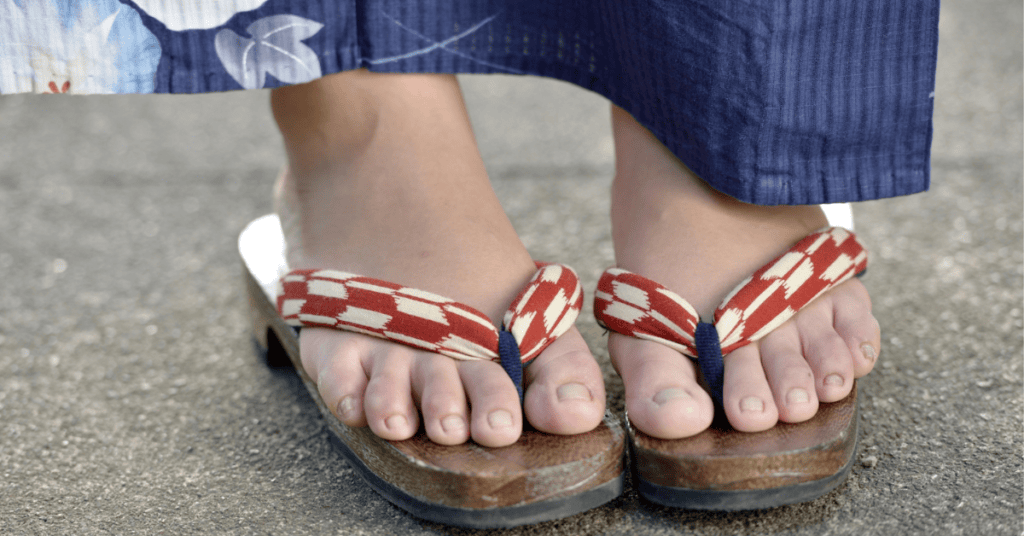
By spending more than just one night, you allow yourself to truly engage with the ryokan experience, turning what could be a simple stay into a profound cultural immersion. Take your time, soak it all in, and create memories when you visit Japan.
Cost Considerations and Experiences
The cost of staying in a ryokan can vary greatly depending on the location, the time of year, and the level of service provided.
Generally, ryokans are more expensive than standard hotels due to the personalized service and traditional experiences they offer. Prices can range significantly, but for a well-rated ryokan in Kyoto, you might expect to pay anywhere from ¥20,000 to ¥50,000 per person per night, which includes the cost of your meals and access to facilities like the onsen.
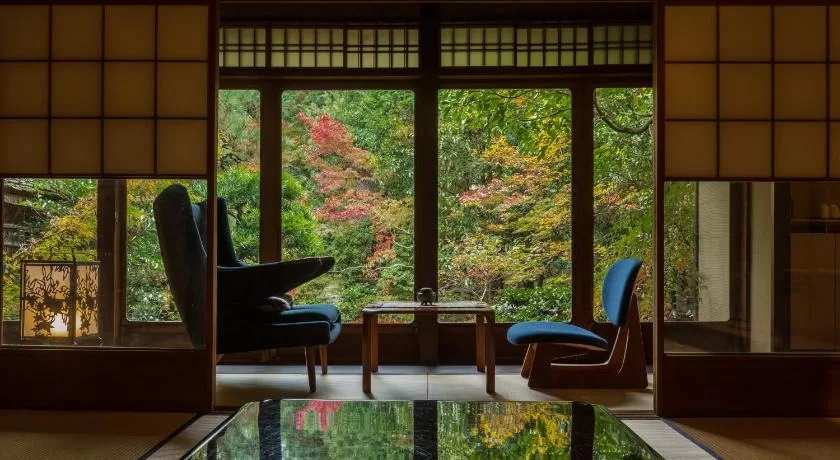
Nanzenji Yachiyo
Price starts at $300 for a Luxury Ryokan Kyoto that allows you to feel the tranquility and traditions of Japan. Located in the heart of Kyoto.
Why Extend Your Stay: By extending your stay, you can make the most of your investment. Two or three nights give you the chance to truly relax and enjoy all the ryokan has to offer without feeling rushed. You’ll have more time to participate in additional ryokan-hosted activities such as tea ceremonies, cultural workshops, and more extensive exploration of the beautiful surroundings.
Itinerary Suggestions for a Longer Stay:
- Day 1: Arrive and unwind with a leisurely soak in the onsen, followed by a kaiseki dinner served in your room.
- Day 2: Participate in a morning tea ceremony, then explore local attractions or enjoy the ryokan’s cultural offerings. Another onsen visit can cap off your day before enjoying yet another meticulously prepared dinner.
- Day 3: Take part in a meditation session or a guided cultural tour provided by the ryokan, followed by a leisurely breakfast and check-out.
Conclusion
One night in a ryokan? Sure, it sounds quick and easy. But trust me, two nights—or hey, even three—will truly let you connect with this beautiful part of our culture. It’s not just about a place to stay; it’s about stepping into a slower pace and really feeling the heart of Japan.
Whether you’re planning a luxurious stay in a Kyoto ryokan or seeking a romantic getaway for your honeymoon in Japan, extending your stay beyond a single night offers a more enriched experience. Kyoto, with its historical richness, and Hakone, with its breathtaking natural scenery, stand out as prime locations to dive deep into the traditional ryokan experience. These places not only offer a retreat from the hustle and bustle of everyday life but also allow you to immerse yourself in the profound beauty and cultural depth of Japan.

